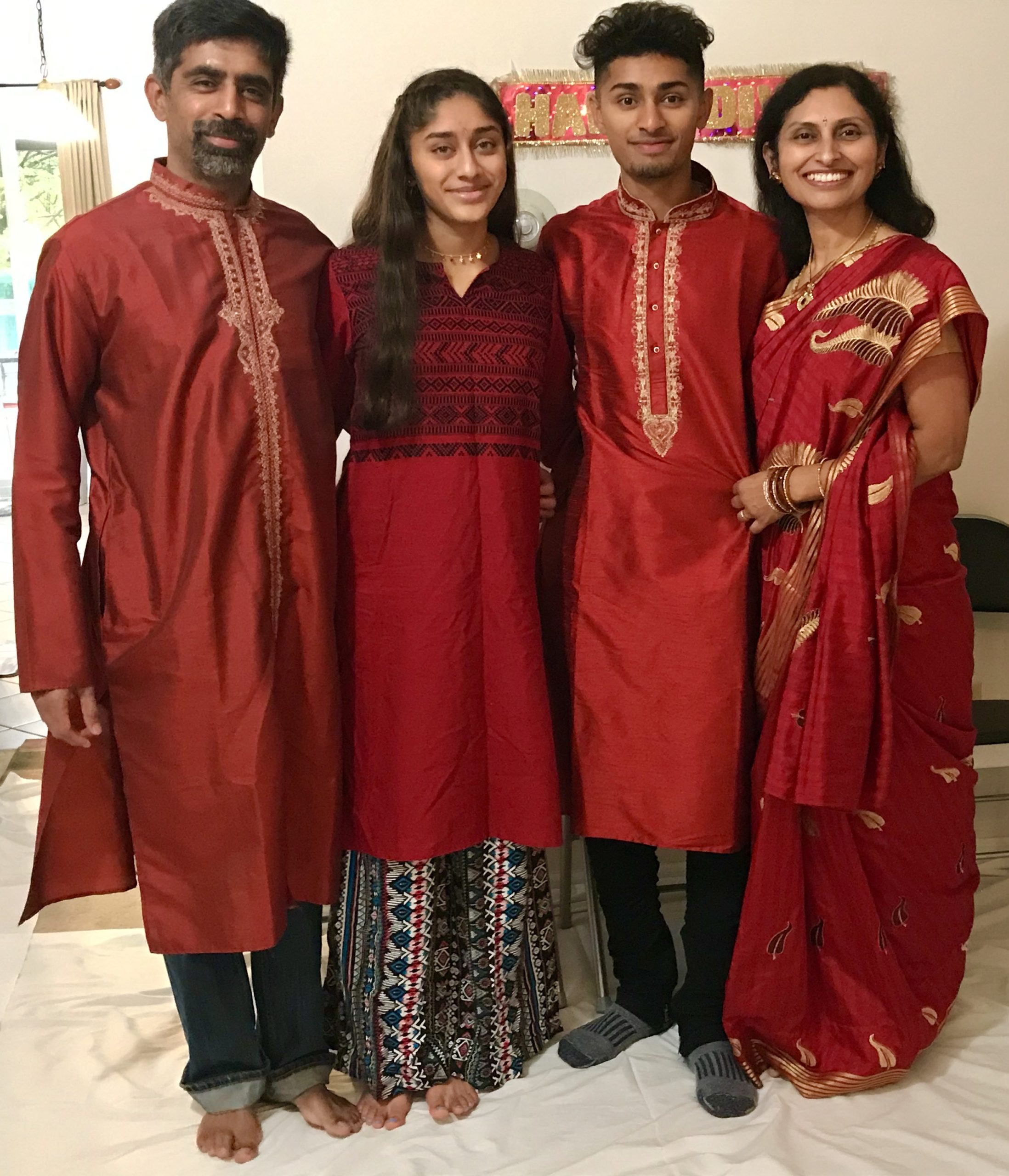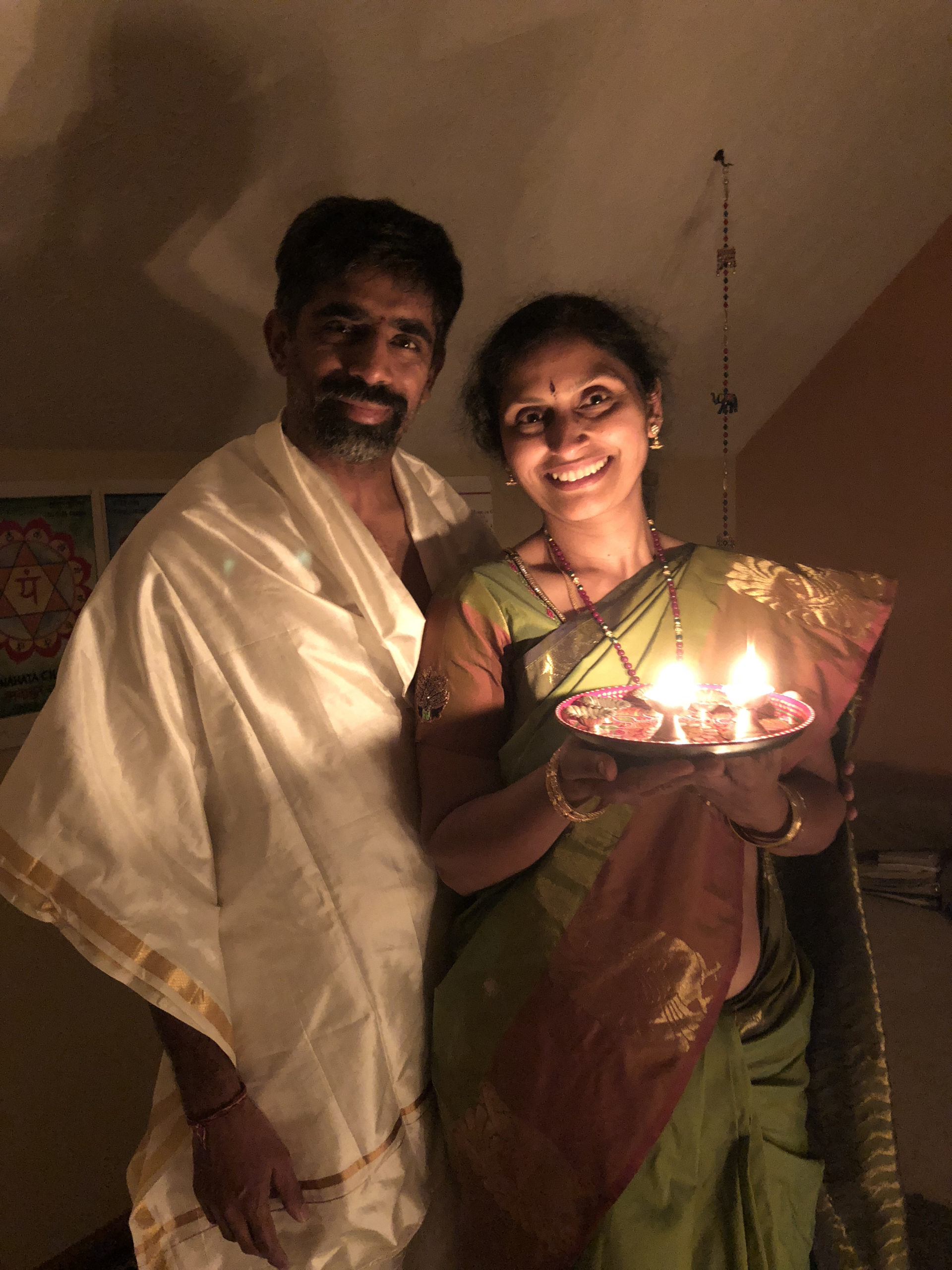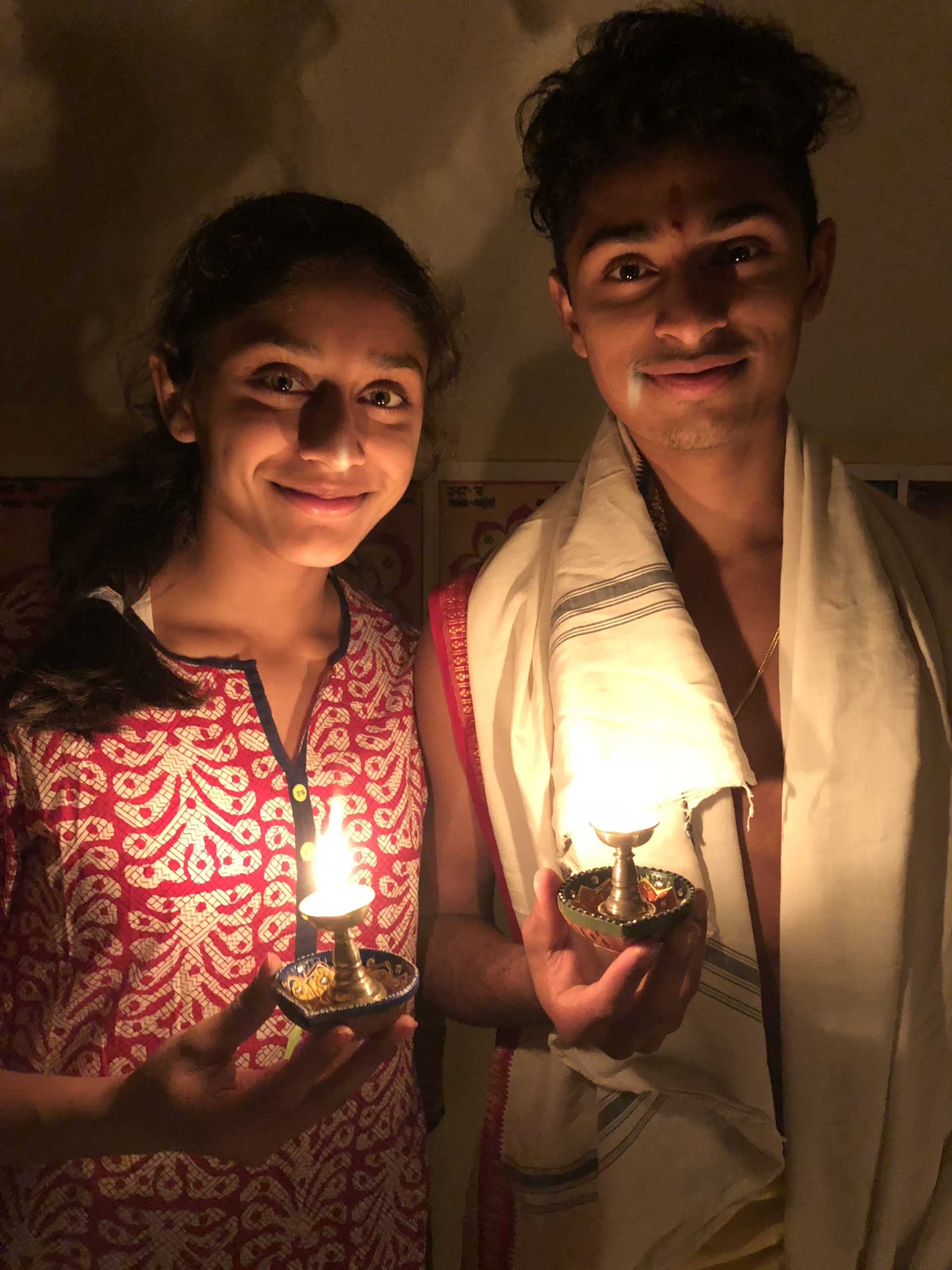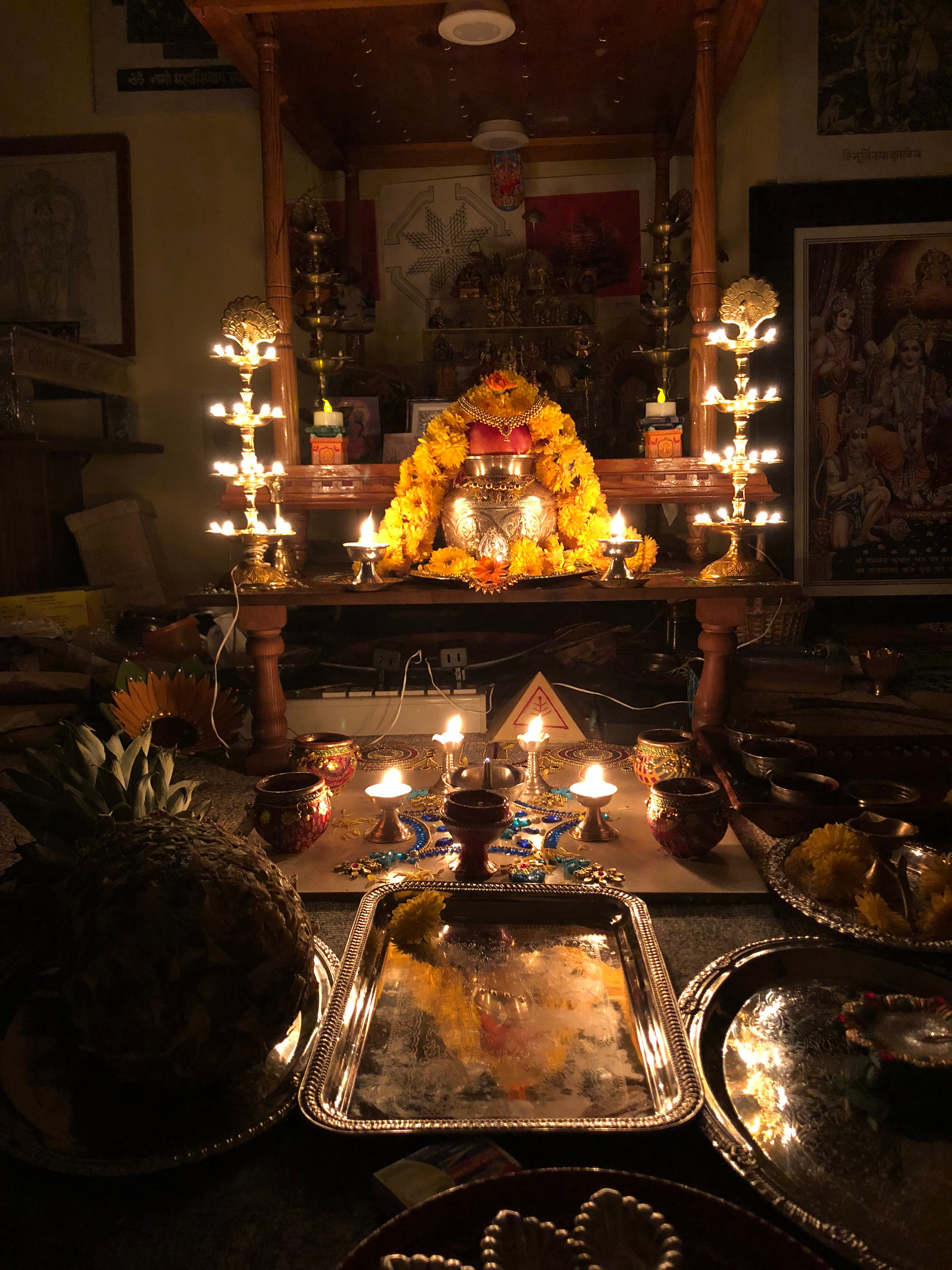Deepavali (otherwise known as Diwali) is the festival of lights. Deepa means “light,” and Aavali means “a row of.” Diwali is celebrated over five days and is one of the most famous Hindu festivals.
This year, Diwali will be celebrated on Sunday, November 12 and Fishers Resident Mala Murthy explains the festival and shares with us how she and her family celebrate!

Like many Hindu holidays, Diwali is set by the lunar calendar, so the actual date varies from year to year, however it typically falls between October and November. The festival showcases the true essence of “unity in diversity,” as every state in India celebrates it in its own unique way. The rituals and customs associated with celebrating Diwali vary based on the regional traditions of India and the cultural customs that are popular in those areas.


On the first evening after the new moon, a special pooja/offering is done to King Bali, who is believed to visit to make sure all his people are living a happy life. “We invite friends and extended family and share special sweets and delicacies, as the next day of Deepavali is a celebration of the bond between brother and sister (it is called Bhai Dhuj)” she said.

Exchanging gifts is also a very important aspect of this day. In India, they light fireworks after sunset. It is also the time where they come together as a community to help those in need through food and clothing donation campaigns (Sewa Diwali).
“Diwali is a time to rejoice in our blessings. It is the time to reflect upon what we have learned and what we would like to be in the coming year. It is also the time to think beyond our own families and work together for the greater good of the community and help those in need as a Sewa (selfless service)” said Mala.
